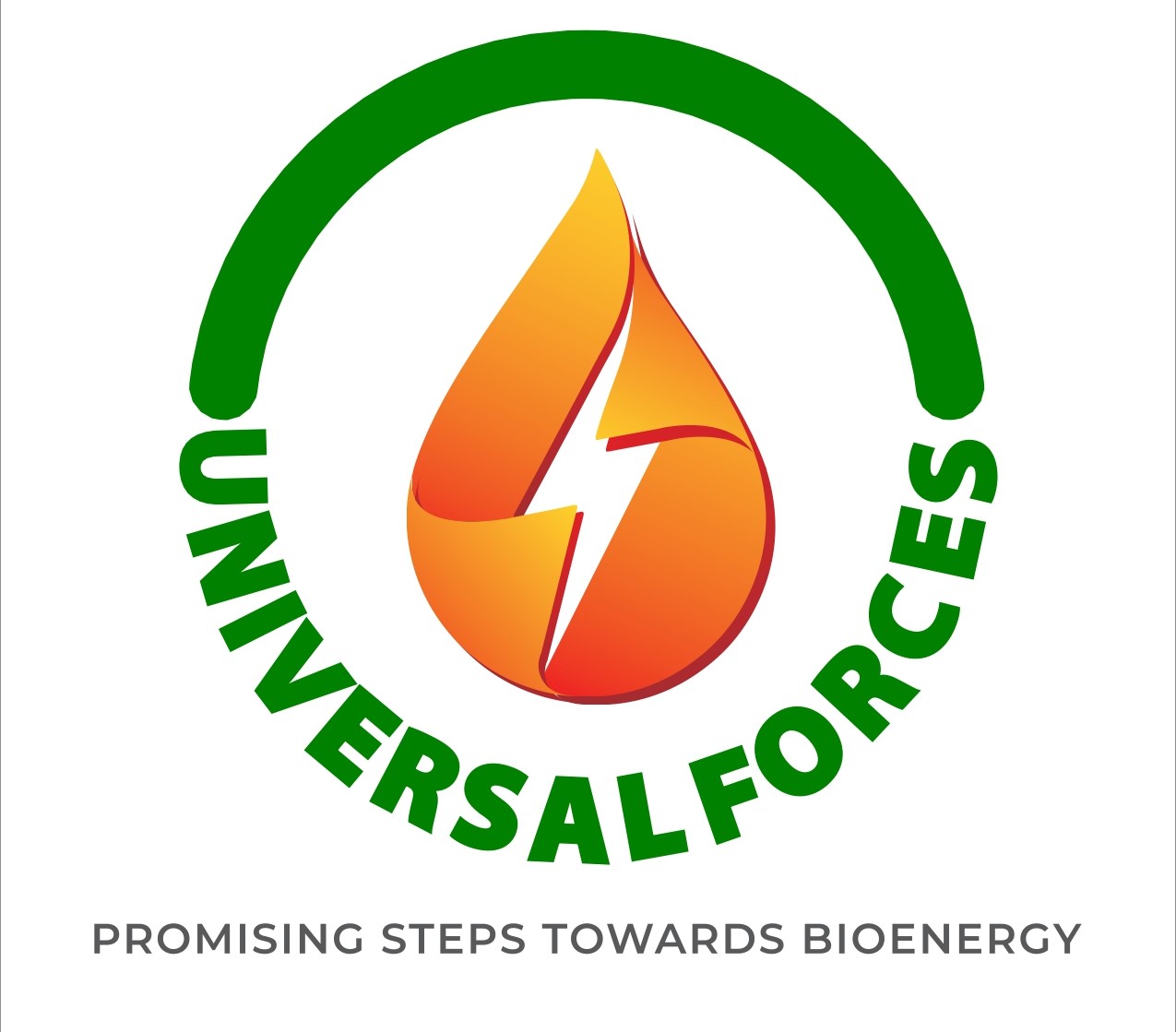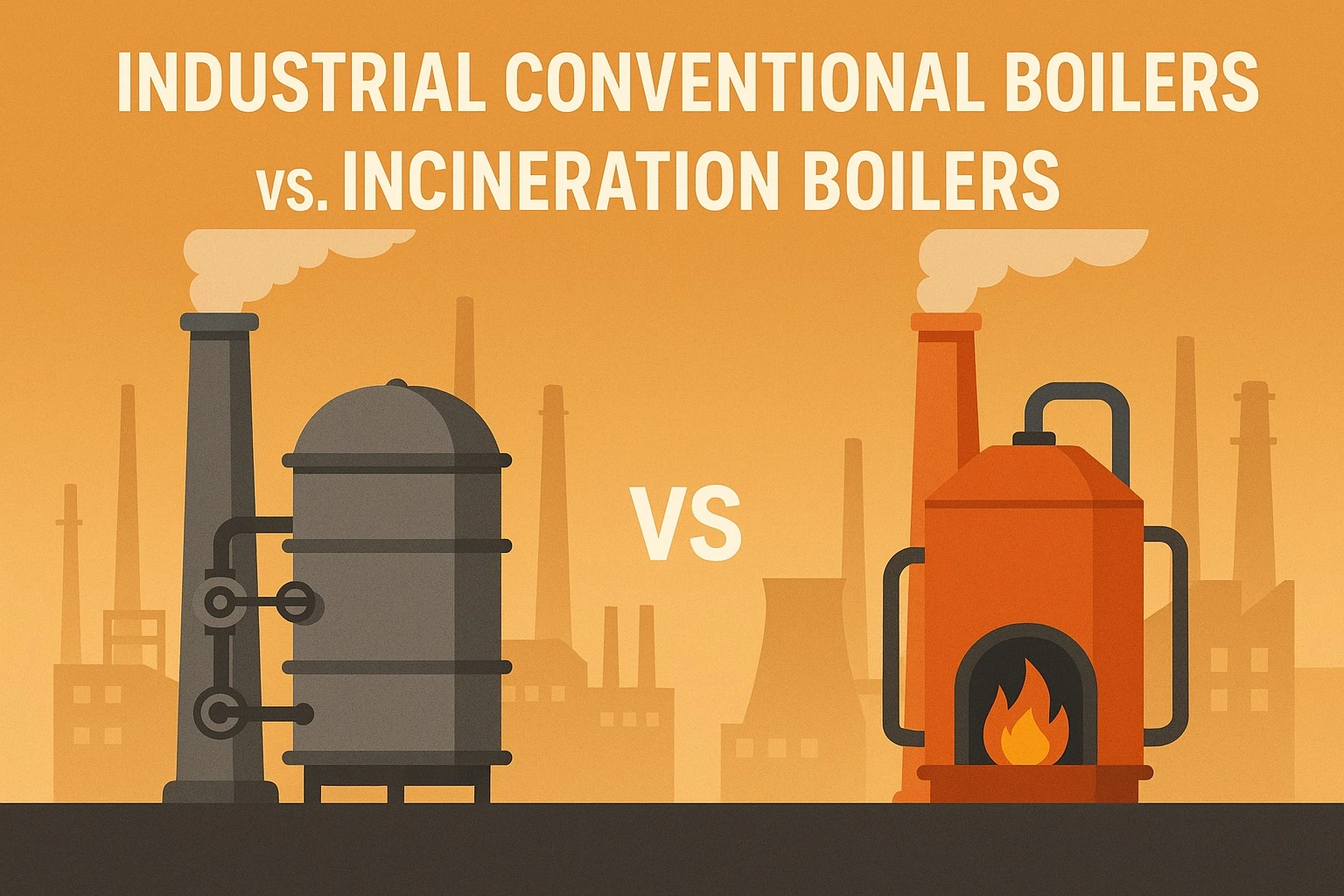Industrial Conventional Boilers vs. Incineration Boilers – A Technical Guide with Real-World Results
Introduction
In today’s energy-intensive industrial world, choosing the right boiler system isn’t just about heating—it’s about safety, sustainability, efficiency, and operational savings. Among the most widely used systems are conventional boilers and incineration boilers, both designed for distinct yet essential roles.
As a leading industrial boiler manufacturer in Pune and a trusted commercial boiler manufacturer for diverse sectors, we help industries make informed decisions that directly impact their bottom line.
What Are Conventional Industrial Boilers?
Conventional boilers (also called shell-type or fire-tube boilers) are widely used in:
- Textile processing
- Chemical manufacturing
- Food and beverage industries
- Pharmaceuticals
🔧 Key Features:
- Operate on fossil fuels (coal, oil, gas)
- Generate steam at low-to-medium pressure
- Simple operation and maintenance
- Ideal for batch processing industries
What Are Incineration Boilers?
Incineration boilers, or waste heat recovery boilers, are designed to burn industrial, medical, or municipal waste and convert the heat into useful steam or hot water.
🔥 Key Applications for:
- Waste-to-energy plants
- Sugar Industries, Ethanol manufacturer Industries,Waste Process industries, Chemical & Pharmaceutical Industries.
- Hazardous waste management
Technical Comparison
| Feature | Conventional Boiler | Incineration Boiler |
| Fuel Source | Fossil fuels | Solid waste, RDF, hazardous waste |
| Efficiency | 80–90% | Up to 95% (with waste heat recovery) |
| Emission Control | Requires scrubbers | Advanced filtration + scrubbers |
| Maintenance | Moderate | High due to corrosive byproducts |
| CapEx | Lower | Higher (but long-term savings) |
Understanding Boiler Efficiency
Before improving efficiency, it’s important to understand how it’s measured. Here are three key metrics:
- Combustion Efficiency: Measures how well the boiler burns its fuel.
- Thermal Efficiency: Tracks how effectively the system transfers heat from fuel to water or steam.
- Fuel-to-Steam Efficiency: Looks at how much fuel is needed to produce a specific amount of steam.
Top-tier commercial boilers manufacturers design their products to maximize these factors, helping businesses get the most out of their energy spend.
Common Boiler Efficiency Issues
Boilers can run into several common issues that impact performance:
1. Poor Combustion Control
Too much or too little air during combustion leads to wasted fuel and lower efficiency.
2. Scale Buildup
Mineral deposits act like insulation on heating surfaces, making it harder to transfer heat and increasing fuel use.
3. Heat Loss
Uninsulated piping or heat escaping through flue gases can cause major energy waste.
4. Wrong Boiler Size
A boiler that’s too big for your needs will turn on and off frequently, wasting energy in the process.
How to Boost Boiler Efficiency
1. Regular Maintenance
Keeping your boiler in top condition is key. Routine tasks like cleaning the heat exchanger, tuning the burner, and checking for leaks can go a long way. Leading boiler manufacturing companies often offer service contracts to make this easier.
2. Optimize Combustion Settings
Installing oxygen trim systems helps maintain the perfect air-to-fuel ratio, improving combustion and lowering fuel consumption.
3. Add Economizers
Economizers capture leftover heat from exhaust gases and use it to preheat the incoming water—resulting in efficiency gains of up to 10%.
4. Use Condensate Return Systems
Instead of dumping out hot condensate, recycle it. This means less cold water needs heating, saving fuel.
5. Insulate Your Pipes
Simple but effective. Proper insulation prevents unnecessary heat loss.
6. Upgrade to a High-Efficiency Boiler
Condensing boilers are designed for energy savings. Many industrial boiler manufacturers in Pune now offer advanced, high-efficiency models tailored to food processing needs.
Tech Upgrades That Make a Difference
1. Boiler Automation
Automated control systems adjust the boiler’s operation in real-time for optimal efficiency—no manual tweaks needed.
2. Variable Frequency Drives (VFDs)
VFDs control motor speed based on demand, which can lower energy consumption, especially on pumps and fans.
3. Online Monitoring Tools
Modern systems let you monitor boiler performance remotely and receive alerts before problems become costly repairs.
✅ Case Study: Sugar & Allied Industries Plant in Sangamner, Maharashtra, India.
Requirement:
- Replace old steam generator
- Improve waste handling and energy reuse
- Reduce annual energy costs
Solution:
We installed a 21 TPH incineration boiler integrated with a conventional boiler for peak load support. Waste solvents and sludge were used as partial fuel.
Results (Measured over 1 year):
- ✅ Energy cost savings: ₹32-45 lakhs annually
- ✅ Reduced fossil fuel usage: 48%
- ✅ Payback period: 2.6 years
- ✅ Waste disposal cost savings: ₹7-8.5 lakhs annually
- ✅ Improved boiler uptime: 96%
“This hybrid setup drastically reduced our energy bills while addressing both our process heating and waste treatment challenges. Having a responsive industrial boiler manufacturer in Pune like UNIVERSAL FORCES INDUSTRIES PVT. LTD. proved invaluable. Their technical expertise and ability to deliver a tailored solution met our expectations and ensured seamless implementation.”
— Plant Head
Bottling Facility in Gujarat
An Alcohol manufacturer revamped its operations by partnering with UFIPL. Upgrades like automation and VFDs boosted boiler efficiency by 18% and helped streamline production.
How Manufacturers Are Leading the Charge
In response to growing demand for greener operations, many industrial boiler manufacturers in Pune have stepped up. They now offer:
- Condensing boiler models
- Modular systems that adjust to changing loads
- Smart control systems
- IoT-enabled predictive maintenance
Similarly, commercial boilers manufacturers have started offering custom solutions designed specifically for the complex needs of food processors.
Environmental Benefits of Better Efficiency
Improving boiler efficiency does more than save money—it also reduces environmental impact by:
- Cutting down on fuel use
- Lowering greenhouse gas emissions
- Saving water through smarter steam management
By choosing a boiler manufacturing company that prioritizes sustainability, businesses not only reduce their footprint but also align with customer expectations and government guidelines.
Understanding the Cost vs. ROI
Efficiency upgrades may require some upfront investment, but they typically pay for themselves quickly. Here’s a snapshot of typical returns:
| Investment Type | ROI Period |
| Economizer Installation | 6–18 months |
| Condensate Return Systems | 12–24 months |
| High-Efficiency Boilers | 2–4 years |
In the long run, lower energy bills and fewer breakdowns can lead to substantial savings.
Meeting Regulatory Standards
Regulatory agencies like the Central Pollution Control Board (CPCB) and Bureau of Energy Efficiency (BEE) are setting stricter standards. Boilers need to comply with:
- Emission limits for NOx and SOx
- Minimum efficiency benchmarks
- Regular safety inspections
Working with certified boiler manufacturing companies ensures your equipment meets these regulations and avoids costly penalties.
Choosing the Right Boiler Partner
When shopping for a boiler, don’t just focus on price. Consider:
- Energy efficiency ratings
- Availability of after-sales service
- Experience in the food and beverage industry
- Ability to customize solutions
- Relevant industry certifications
Whether you’re considering commercial boilers manufacturers or industrial boiler manufacturers in Pune, look for partners that can support your long-term goals.
Boiler efficiency isn’t just a behind-the-scenes technical issue—it’s a business imperative. In the competitive food and beverage industry, efficient boilers can mean the difference between thriving and just surviving.
With smart upgrades, regular maintenance, and support from a trusted boiler manufacturing company, you can significantly improve your operational efficiency. As energy prices rise and environmental regulations tighten, there’s no better time to make boiler optimization a priority.
Whether you’re producing dairy, bottling beverages, or cooking up packaged snacks, working with top-tier industrial boiler manufacturers in Pune or reliable commercial boilers manufacturers can help future-proof your operations.
Benefits of Choosing the Right Boiler System
For Conventional Boilers:
- Proven technology with wide support
- Custom-built for diverse industries
- Easy integration with existing infrastructure
For Incineration Boilers:
- Turn waste into fuel
- Reduce environmental impact
- Government incentives for waste-to-energy projects
- Long-term cost savings despite high initial investment
Why Choose UFIPL?
As a top-rated industrial boiler manufacturer in Pune, UFIPL offer:
- In-house design and fabrication
- IBR and BIS certified systems
- Turnkey installation and AMC services
- Emission control and automation packages
Conclusion
Whether you’re looking to modernize your plant with a conventional steam generator or transition to waste-to-energy with an incineration boiler, we’re here to deliver the right solution.
Ready to improve your plant’s energy efficiency and reduce costs?
Partner with the leading industrial boiler manufacturer in Pune and a trusted commercial boiler manufacturer with proven results.
📞 Contact us / Email us in details with your requirement and expectation today, for a free site audit and customized proposal.

